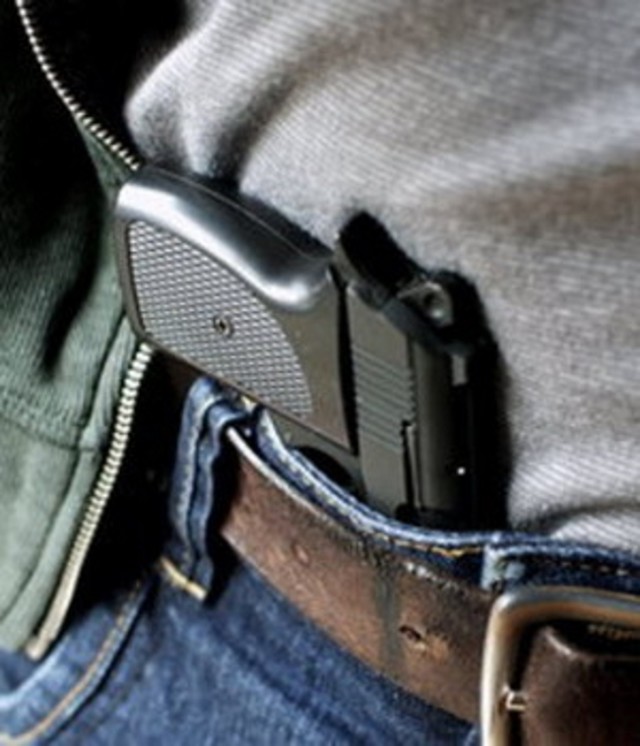
By Jim Turner, News Service of Florida, SouthFloridaReporter.com – THE CAPITAL, TALLAHASSEE, January 7, 2016……….Florida lawmakers will enter the annual legislative session Tuesday with a full clip of firearm-related bills.
And it appears a Senate committee could play a pivotal role in determining whether two of the more controversial proposals advance this year.
One of the proposals (HB 4001 and SB 68) would allow people with concealed-weapons licenses to carry firearms on state college and university campuses, while the other (HB 163 and SB 300) would allow people with the licenses to openly carry guns. Both issues await decisions in the Senate Judiciary Committee, where the campus-carry measure died last year.
Senate President Andy Gardiner, R-Orlando, said last month that he told Senate Judiciary Chairman Miguel Diaz de la Portilla, R-Miami, not to drag out the decision.
Diaz de la Portilla, who did not respond to requests for comment, has not said if he will bring up the bills during the 60-day session.
House Minority Leader Mark Pafford, D-West Palm Beach, said he hopes the measures will be “killed or slowed down” in the Senate.
“It’s irresponsible gun legislation,” Pafford said. “Hopefully, the Senate will come to its senses. It’s reckless behavior.”
Second Amendment advocates say if the campus-carry and open-carry issues are muzzled this year, they will continue to pursue the measures in future years.
“It would mean the bills will be back next year,” influential National Rifle Association lobbyist Marion Hammer said in an email.
Sean Caranna, executive director of Florida Carry, Inc., said passing the bills is “inevitable.”
“Florida’s law-abiding gun owners will not stop advocating strongly for the right to bear arms. … Ever,” Caranna said in an email. “Elected officials who oppose constitutional rights will have a reckoning to contend with from their constituents at election time. The right to bear arms is a primary issue to most gun owners, and gun owners vote at a much higher rate than other segments of the population.”
Florida started the year with 1.48 million people holding concealed-weapons permits.
Other firearm measures before the Legislature include:
— A proposal (HB 169 and SB 344) that would shift the burden of proof to prosecutors when people invoke the state’s “stand your ground” self-defense law in cases involving incidents such as shootings.
The proposal, opposed by prosecutors, appeared to die in the House Criminal Justice Subcommittee in November when it failed to receive a favorable vote. However, the Senate version has moved through committees to the Senate floor, where, if approved, it could be attached to legislation that would go to the House.
— A proposal (HB 41 and SB 130), already teed up for votes in the House and Senate, that would seek to prevent people from shooting guns at backyard gun ranges in residential areas.
— A proposal (HB 4031) that would allow people with concealed-weapons licenses to bring their sidearms into meetings of the Legislature, city councils and school boards. The bill has not been heard in House committees, and a Senate version has not been filed.
Any pro-gun bills reaching Gov. Rick Scott’s desk would allow the governor to set a modern record for signing firearm-related measures into law.
Since he took office in 2011, Scott has signed 14 pro-gun laws. The ranged from the 2011 “docs v. glocks” law, which restricts doctors from asking patients about gun ownership, to a measure last year that allows people to bring their weapons with them when forced to leave home because of hurricanes or other disasters.
By comparison, Scott’s predecessor, former Gov. Charlie Crist, signed three pro-gun measures into law during a four-year span. Former Gov. Jeb Bush affixed his name to 14 pro-gun bills — including the “stand your ground” law — during his eight-year tenure as chief executive.












